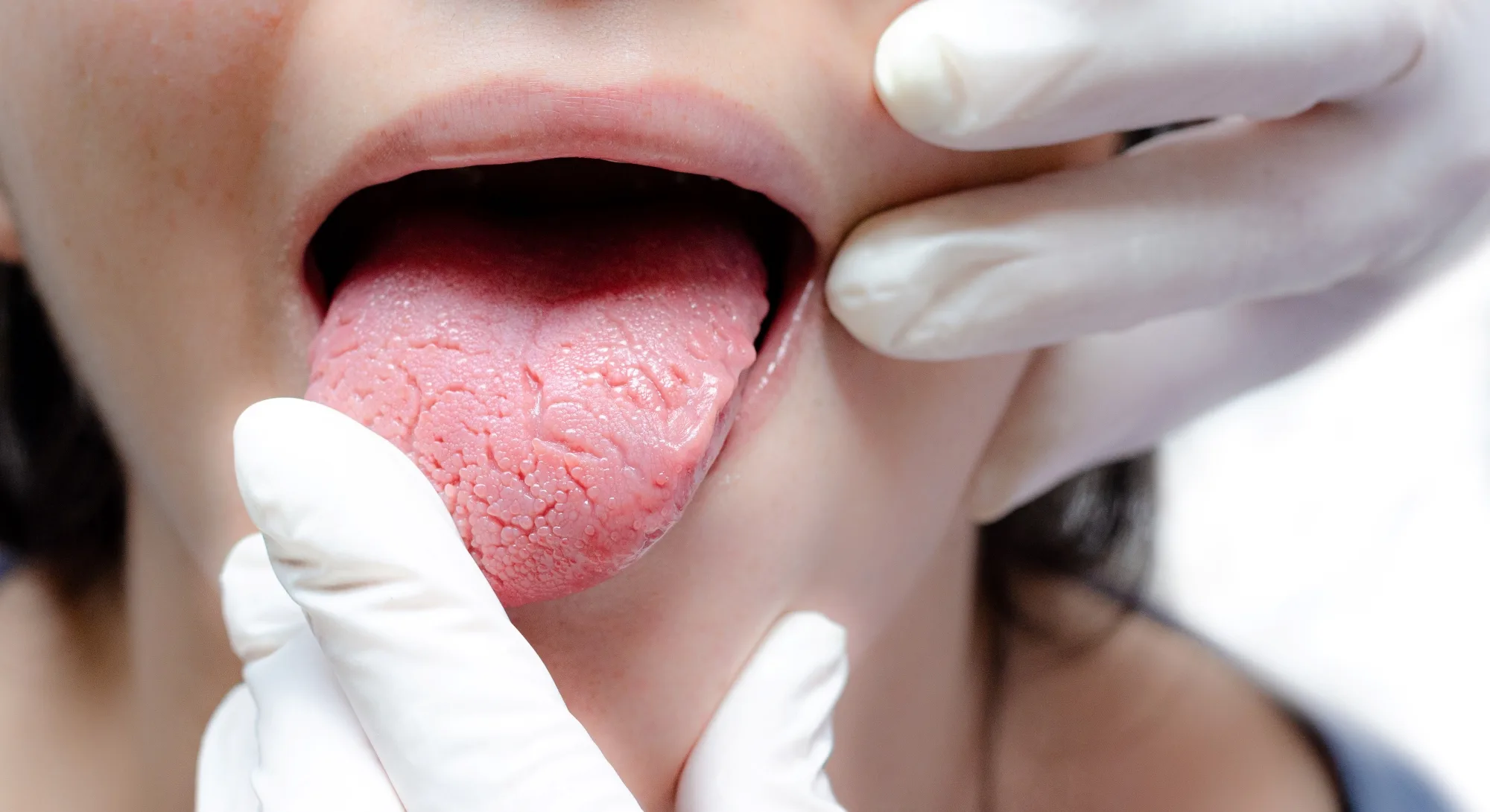
Glossitis: Types, Symptoms, Causes, & Treatment

This blog has been reviewed and approved by Dr Robert Lee, a dental professional of 35 years
Table of Contents
Key Takeaways
- Glossitis is the name given to swelling of the tongue. It can also cause a change in tongue texture and colour.
- Several factors can cause glossitis, including deficiencies, trauma, and allergies.
- Most cases of glossitis will not require a trip to the doctor, and symptoms should last no longer than 10 days.